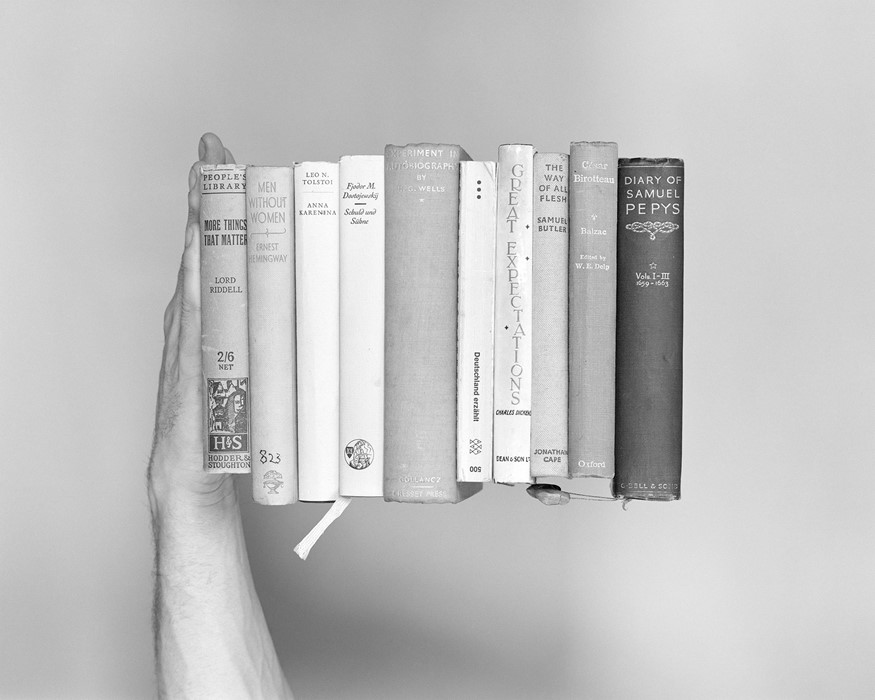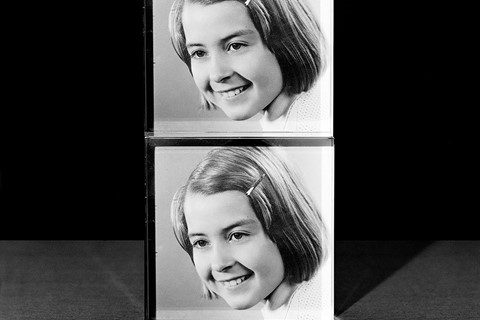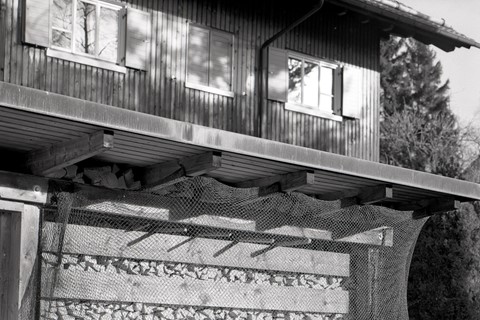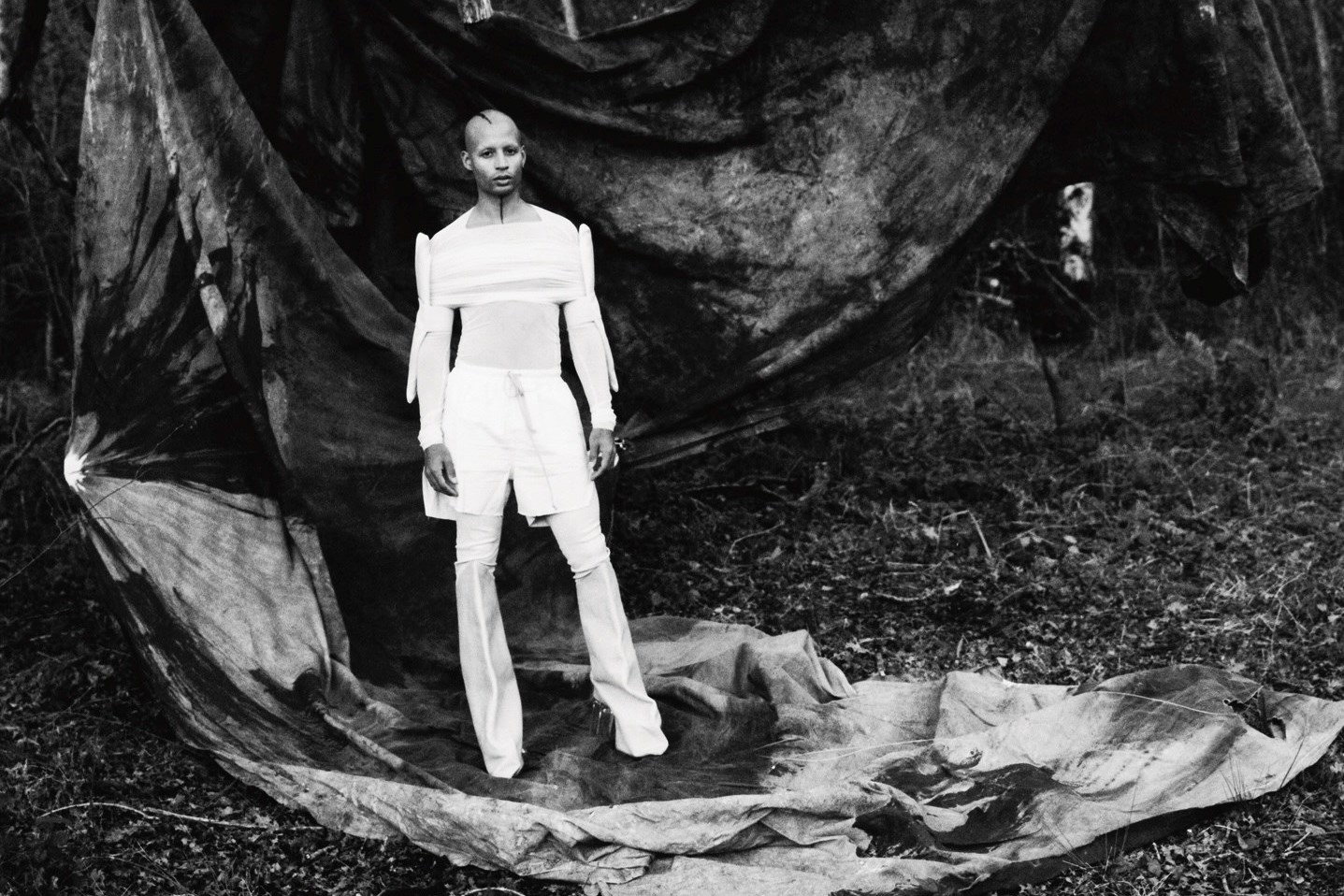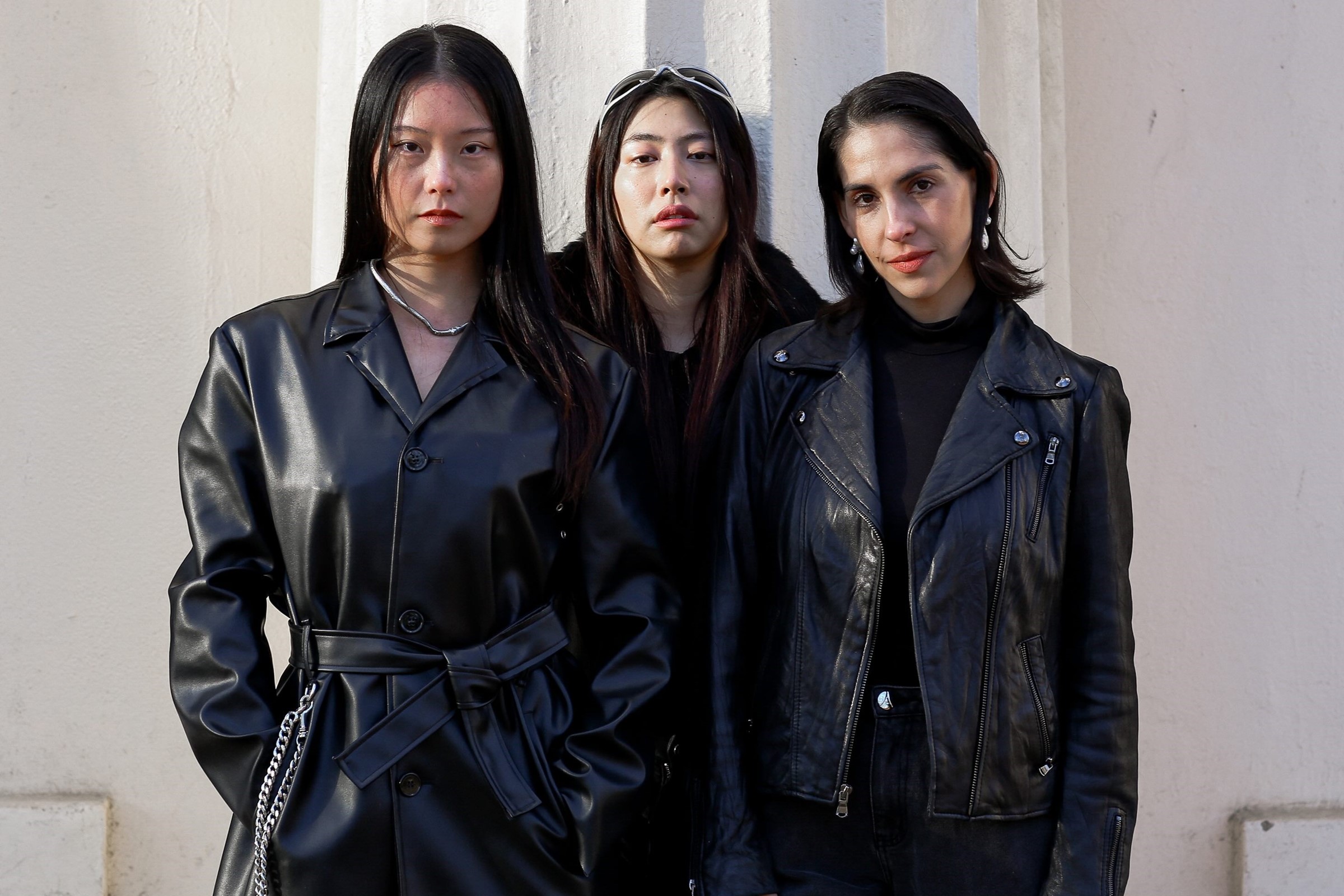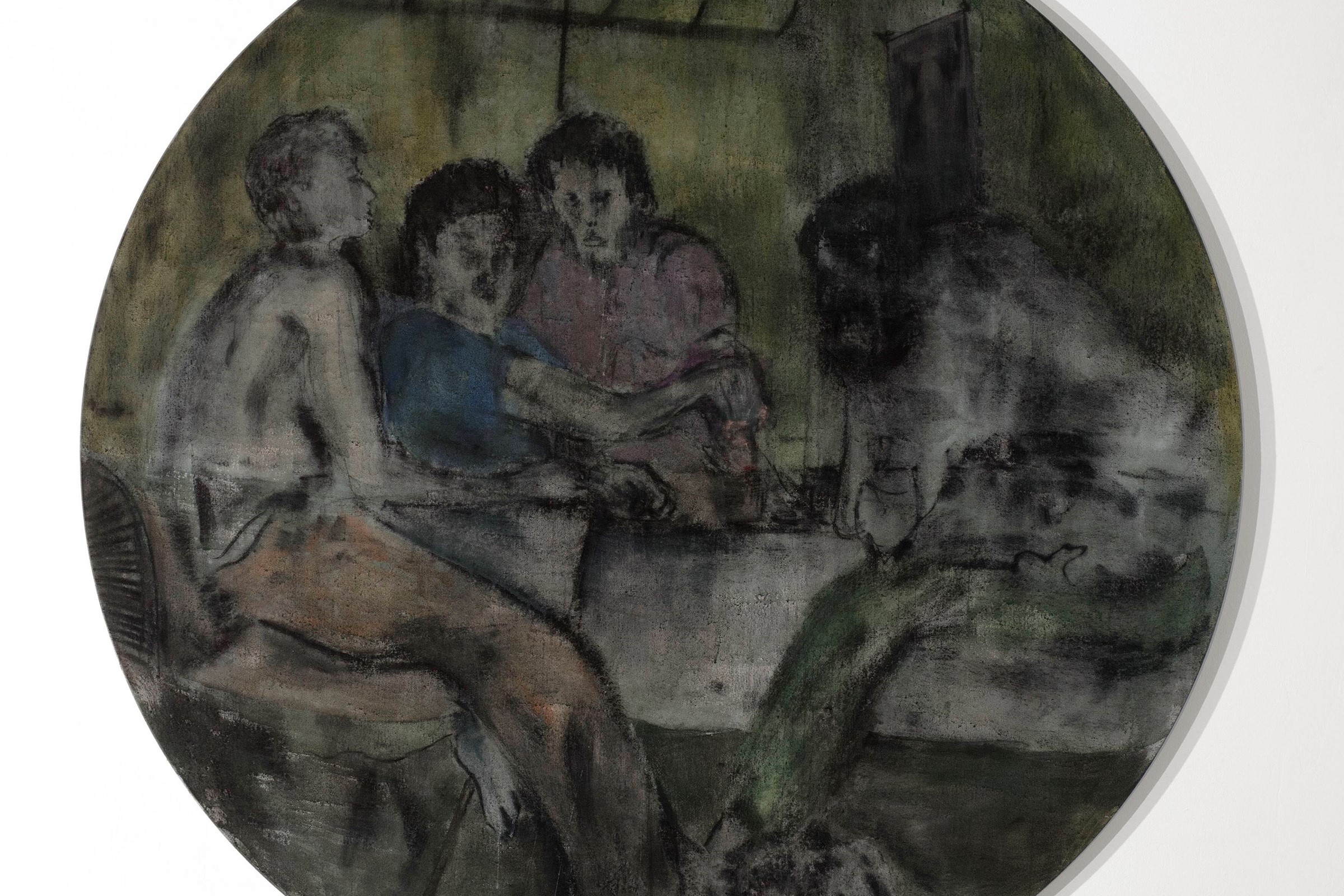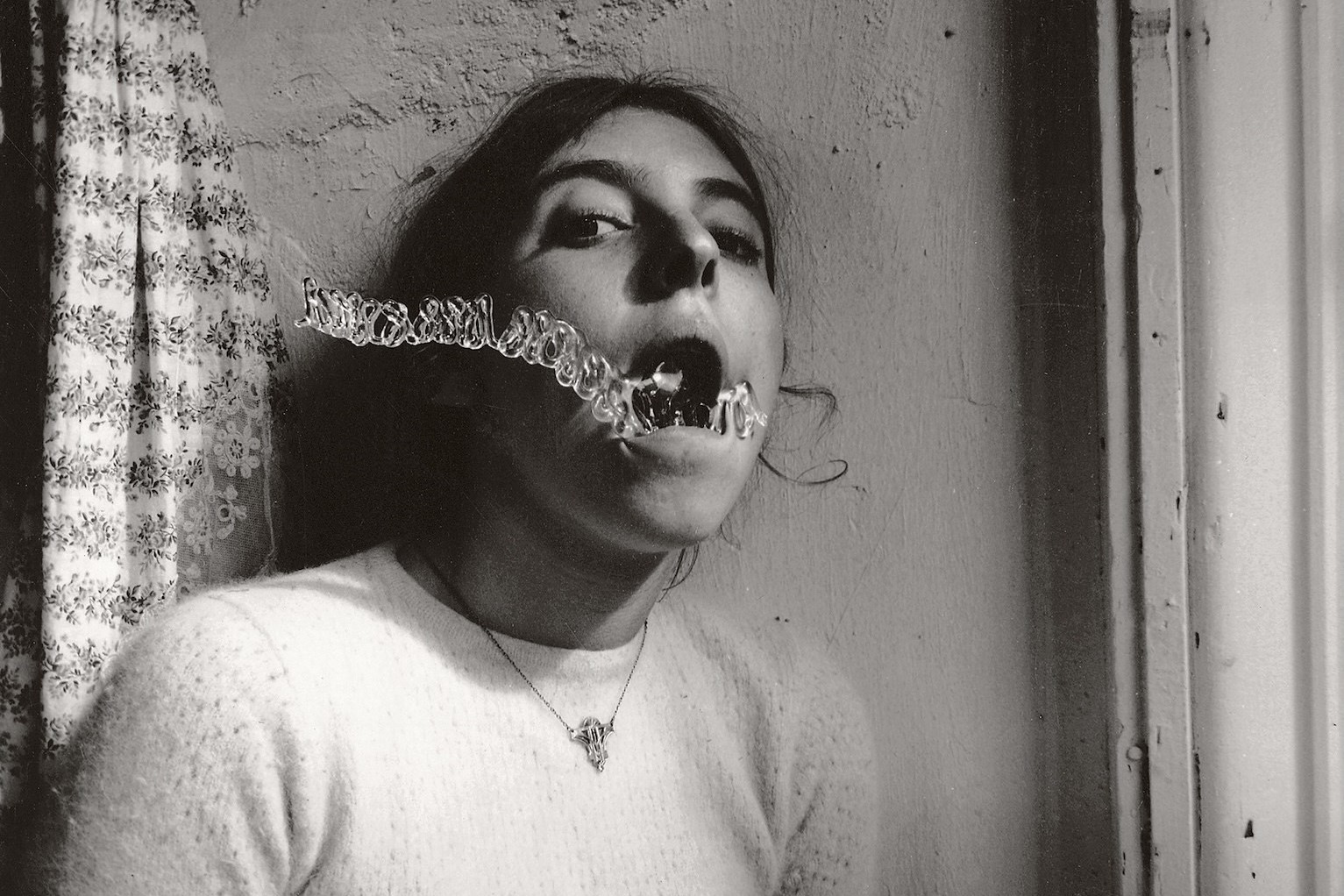In his deeply personal new exhibition, The Unforgetting, photographer Peter Watkins seeks to come to terms with loss by pushing the boundaries of his medium
In 2010, 17 years after his mother walked into the North Sea and drowned, artist Peter Watkins began to piece together his memories of her, creating a body of work which oscillates uneasily between presence and absence. Photography is for Watkins a malleable, “elastic” medium, and objects – either on display or photographed and shown as framed prints – feature prominently in The Unforgetting, his powerful examination of the trauma of loss. Whether it is an image of a Christening gown suspended ghoulishly in the air, or a black rucksack presented in the space itself, every object hints at the notion of presence, serving as a trace of a life lived.
“I’m interested in how the work’s meaning and reading can be extended beyond the edge of the photograph, whether that is in the materials, framing, scale, or installation,” says Watkins, who studied at the Royal Academy of Art in London. “It’s an ongoing body of work and I’ve explored various ways of presenting it, in terms of the installation aspect as well as the contextual information given to the audience. In every exhibition I’ve looked to respond to the architecture of the space, thinking about the physical experience for the viewer.”
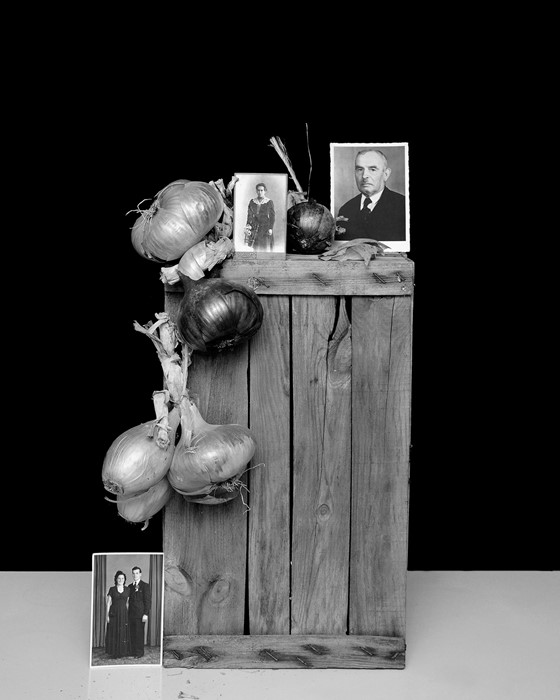
For this latest outing at Webber Gallery Space, his first solo show in London, Watkins chose to “strip back” the installation, yet the intensity and mystique remains. Images of rolls of Super 8 film, a hand holding a cassette tape, and an axe and block of wood seem to move outside of their frames, and it’s not always obvious where the photographic image ends and the physical artefact begins. But that uncertainty is exactly what makes the show so absorbing. The images of objects and the objects themselves are like portals into a family history where fact, memory and fiction blur – truths might be half-remembered, memories embellished.
On one level the series explores Watkins’ shared German ancestry with his mother, but his intention was to go beyond the personal, touching on universal themes that viewers might be able to relate to – those of loss, trauma, and grief, but also photography’s role as an aid to memory, and the notion of coming to terms with our place in the world as individuals and as family members too.
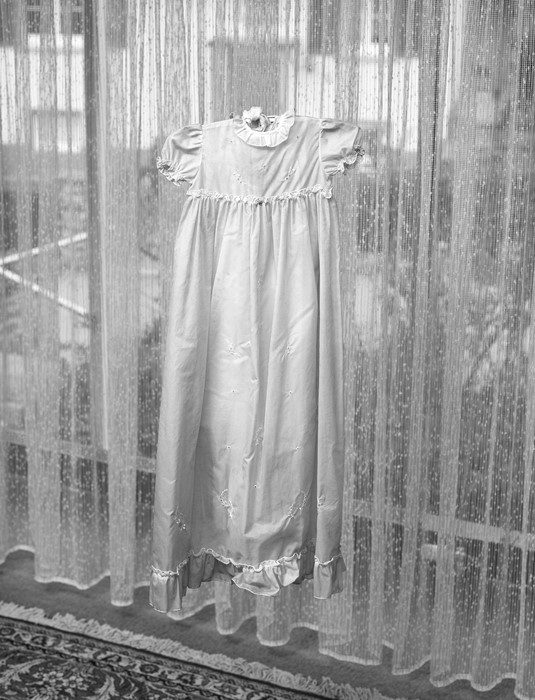
“It’s been an ever-evolving negotiation with myself as to how to sensitively put the work into the public realm, retaining a sense of respect for the departed and for my family,” says Watkins. “When I first showed it, I was reluctant to give any biographical information. Over time I’ve come to realise that it requires contextual anchoring… There needs to be a route into the work for the audience, but it’s a fine balance between what is revealed and concealed, something that I’ve been very aware of.”
The exhibition, curated by Tim Clark of 1000 Words magazine, is the first of a series of shows on the theme of memory and representation to celebrate its 10th anniversary in 2018. Watkins is also publishing a book of the work with Mörel Books, which will signal the end of a chapter of sorts for him, he says. “If you think outside the idea of projects, then certainly the themes and research interest won’t go away, but rather extend in a different direction,” says Watkins. “In this way I’m sure the project will prove foundational in terms of what I go on to do in the future.”
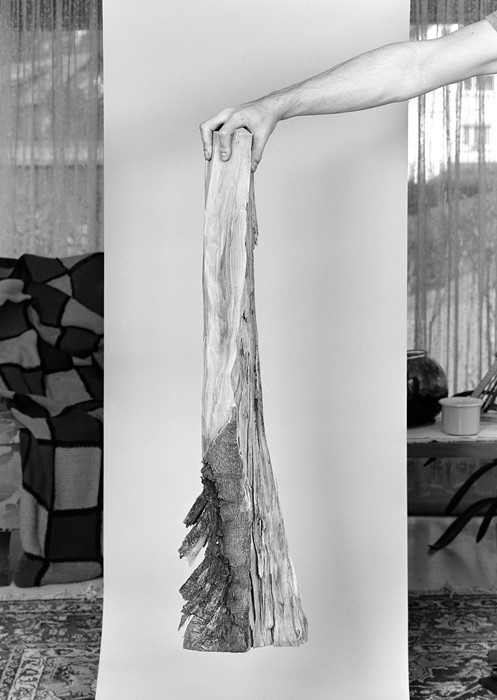
Peter Watkins: The Unforgetting is at Webber Gallery Space in London until July 31, 2017.
